If you’ve always dreamed of doing an extended, multi-day backpacking trip, but the thought of carrying back-breaking, heavy loads over challenging terrain has held you back, or if you just want to generally lighten your load when hiking, then it is time to consider a new way of thinking about backpacking - Ultralight Backpacking.
Ultralight backpacking is a style of backpacking that adopts the Less Is More philosophy. The idea is that by carrying light and multi-purpose equipment, backpackers can cover longer distances per day with less wear and tear on the body. This has two advantages: you can travel further and faster if that is your goal, or you can simply enjoy the backcountry in greater comfort with a lighter load. This is particularly useful when through-hiking long-distance trails.
Packing for extended multi-day backpacking trips will always be a struggle to balance wants vs. needs, and luxury/comfort items vs. necessities.
Over time, you will learn from mistakes on the trail, and come to realize that even a few ounces can make a huge impact on the overall weight you are carrying and how you feel over many kilometers, challenging terrain, and long hours.
Remember that ounces = pounds, and pounds = pain. Each person will ultimately have to determine their own balance of comfort and necessity.
Backpacking is the art of knowing what not to take. We often pack our fears. If we are afraid of being too hungry, we will pack too much food. If our greatest fear is being cold, we will pack too many clothes.
Try not to pack based on what could go wrong/worst-case scenario. Pack a little bit of Zen – research, prepare, pack, be safe, work hard, and then let go of outcomes you can’t control.
The less we have, the less we need. You will find that you need less comfort at camp because you don’t beat yourself up as much on the trail.
Learning to value yourself more than things is key - your skills, knowledge, experience, intelligence, confidence – the more you know, the less you need. And less stuff equals more freedom.
DEFINITIONS
Lightweight < 20 pounds
UltraLight < 10 pounds
SuperLight < 5 pounds
For the average person in good condition and health:
At 20-25 lbs: a well-fitting pack shouldn’t be noticeable on your back At 20 lbs: you forget you have one on
At 25 lbs: you start remembering it’s there At 30 lbs: it’s starting to feel slightly heavy
At 35 - 40 lbs: you start fidgeting with the straps and adjusting them regularly, but it’s still manageable
At 50 lbs and up: it’s a slog
Base weight - all of the gear and clothing carried inside the backpack, plus the weight of the backpack.
Consumables - the water carried and the weight of the food, plus fuel. 1 L of water = 2.2 lbs
Food weight varies from 1-2 lbs per person per day and fluctuates daily as food and water are consumed and re-supplied.
Full pack weight - the total of the base weight and the consumables weight
If you were hiking in an area with limited water such as the Grand Canyon, you may need to carry 8-10 L of water per day, which would weigh approximately 20 pounds - all the more reason to keep a low base weight.
Ultralight backpacking can best be achieved by combining the following elements:
- Reduce each item's weight: Modify items to reduce excess weight or replace items manufactured using heavy materials with items made from lighter ones, such as titanium utensils.
- Weigh everything: To determine how much weight you are carrying and saving, you need to weigh each item and record its weight. Only with precise before and after weights can you really see how much you are saving. Keep a spreadsheet with the weight of all your gear.
- Carry less. Omit unnecessary items such as camp chairs, coffee makers, electronic gadgets, multiple items of clothing, etc. Consider clothing made from lightweight fabrics such as merino wool that is both warm and naturally odor-free, so you don’t have to carry as many items.
- Share gear with others. Where possible, one person carries the tent, one person carries the cooking system, and the food is split up. It depends on the type of trip, location, etc.
- Work on your outdoor skills: Through reading and practice in the field, you can increase your skill and confidence level in using the environment and gear, and thereby become less dependent upon multiple tools and gadgets to carry along.
- Lighten your feet. Trail running shoes can replace heavy hiking boots and are both more lightweight and comfortable.
- Rethink, Reduce, and Repackage. Carry only the amounts of what you'll need for the trip in terms of fuel, sunblock, insect repellant, batteries, etc. This often means repackaging items.
- Multi-purpose. Try to use items that can serve more than one purpose or task such as hiking poles that can be used for tent poles or your cooking pot used to cook, serve, and eat from.
- Replace gear. When you need to replace or buy new gear, consider buying lighter weight gear. Start with the shelter, sleeping, and carrying systems (commonly called the Big Three). There are many new technologies, such as Cuben Fiber, which is lightweight, durable, and waterproof, and is used in tents, backpacks, and rain gear.
You will always need to carry enough gear to be as safe as possible, but with a little planning and consideration, and an honest look at what you really need, you can achieve a lighter backpack. You will be truly surprised at how little you need to be comfortable in the great outdoors!
The Toronto Outdoor Adventure Show was held on February 23, 2020. Leanne Hennessy and Peter Romain presented at this show on the topic of UltraLight Backpacking. They spoke to a packed room, with over 150 people in attendance.

HUGE thank you and shout out to Six Moon Designs for their very generous sponsorship of this presentation! It was amazing to be able to give out 6 prize packages with gear from Six Moon Designs based on participants at the presentation answering trivia questions on UltraLight Backpacking! In addition, we had a random draw give away at the end for the Gatewood Cape Shelter, tent poles, and pegs. The winner of this was Marissa Manning, of Oshawa, Ontario, Canada.
After the show, we had one final give away on social media, for the best caption of a funny picture of Leanne and Peter taken at the presentation. The winner of this was Joe Manning, of Lake Forest, Illinois.
THANK YOU Six Moons for being with us in Toronto and for all you do for the ultralight backpacking community!
Words by Leanne Hennessy and Peter Romain.


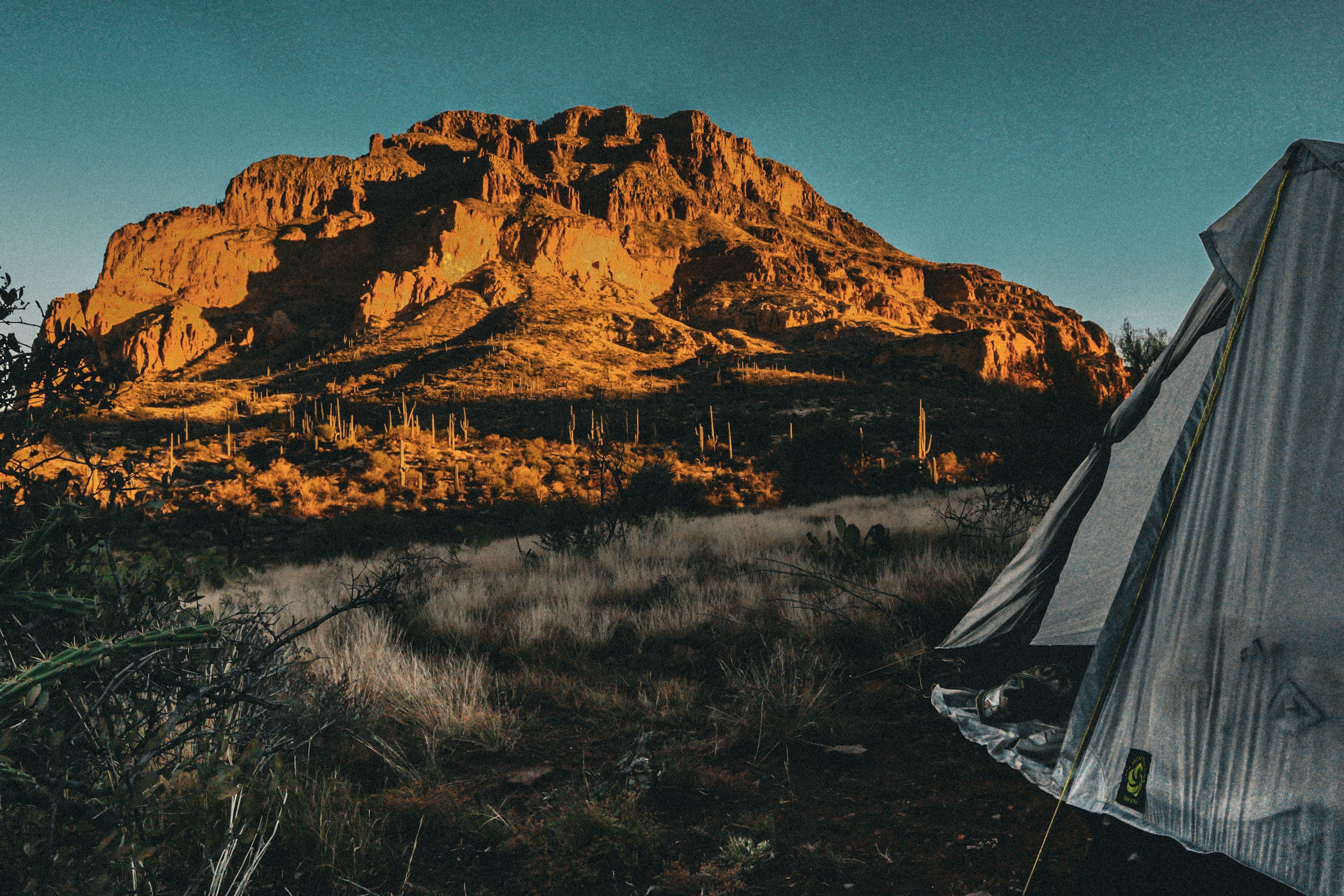
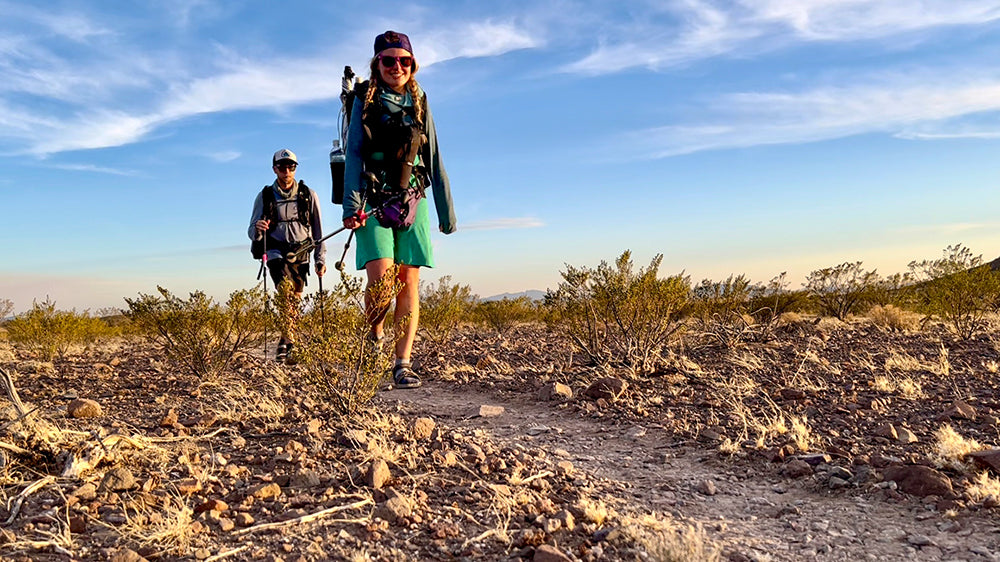
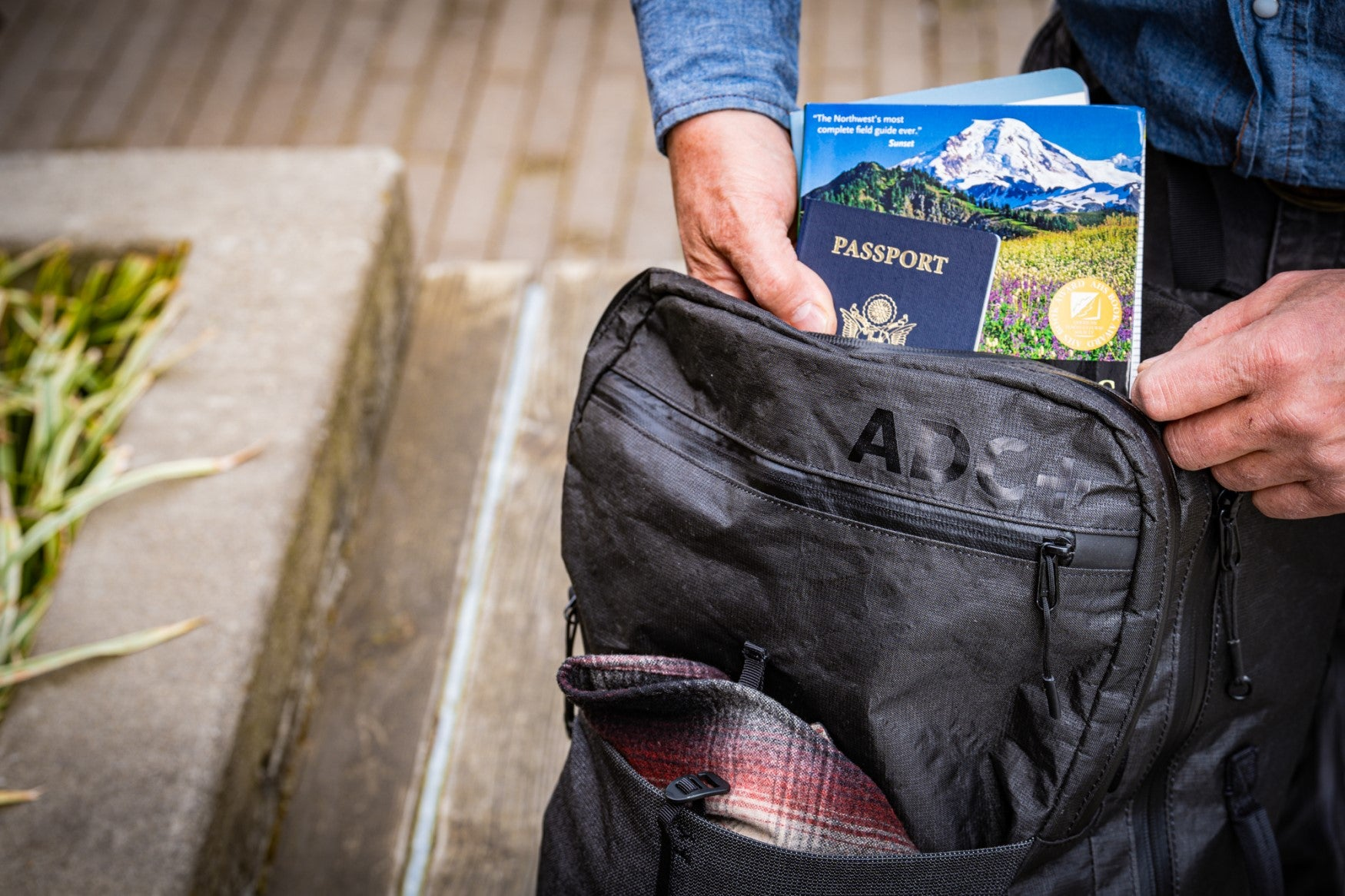
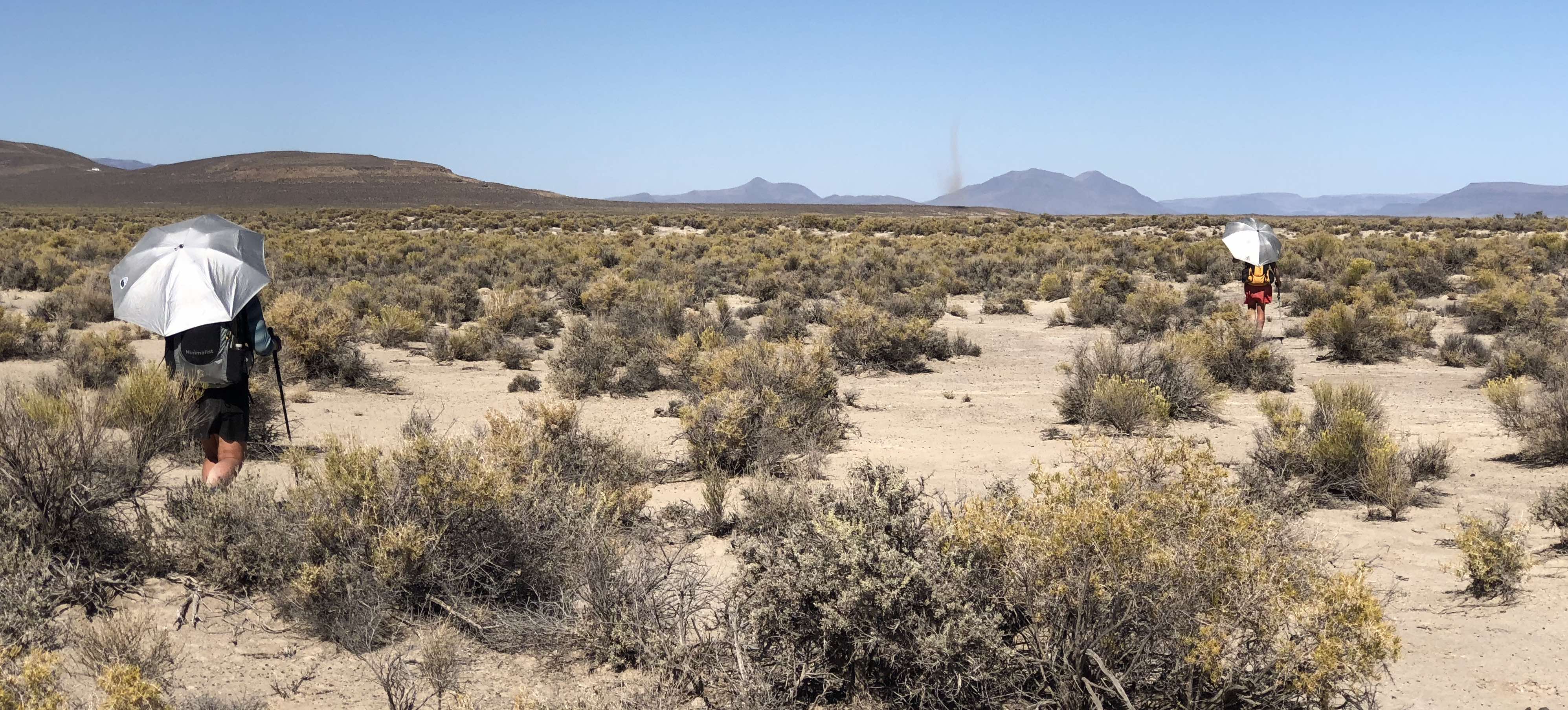
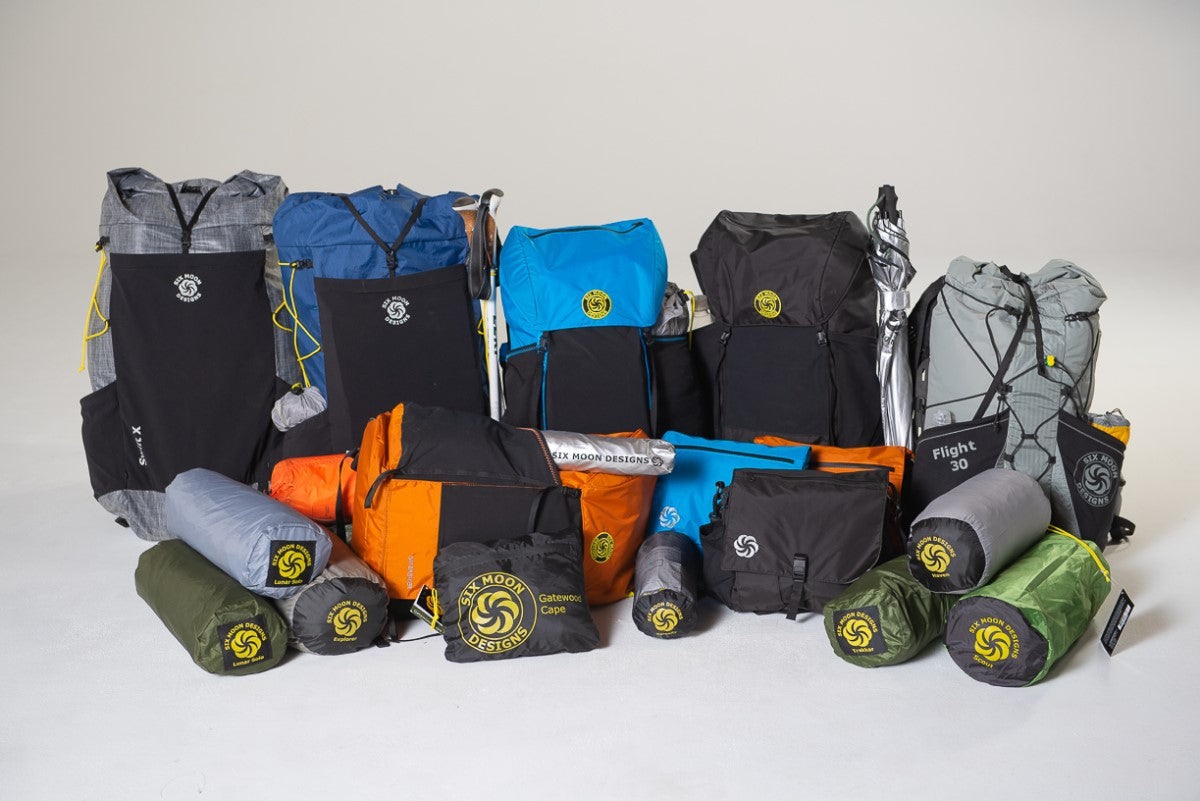
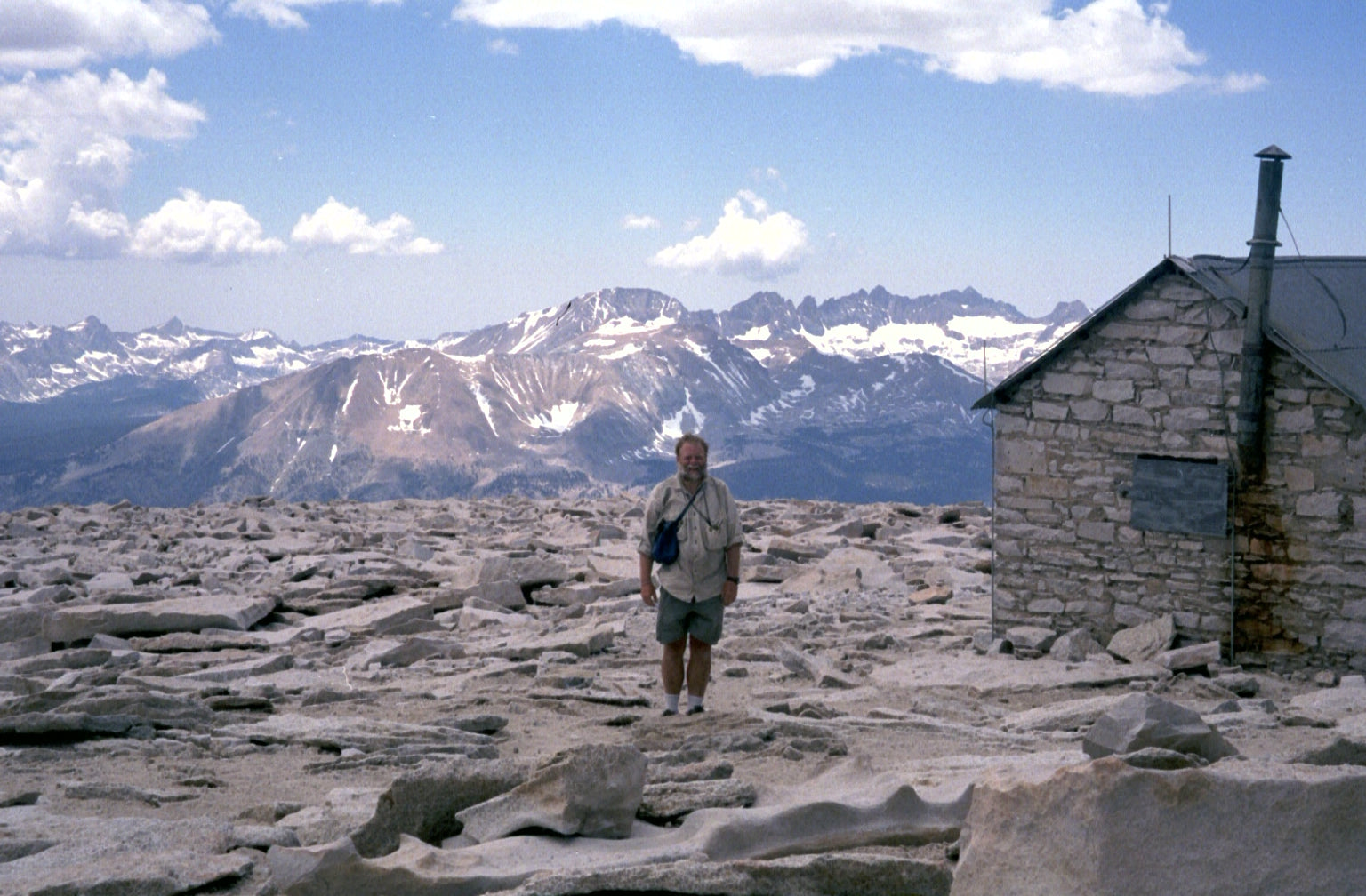
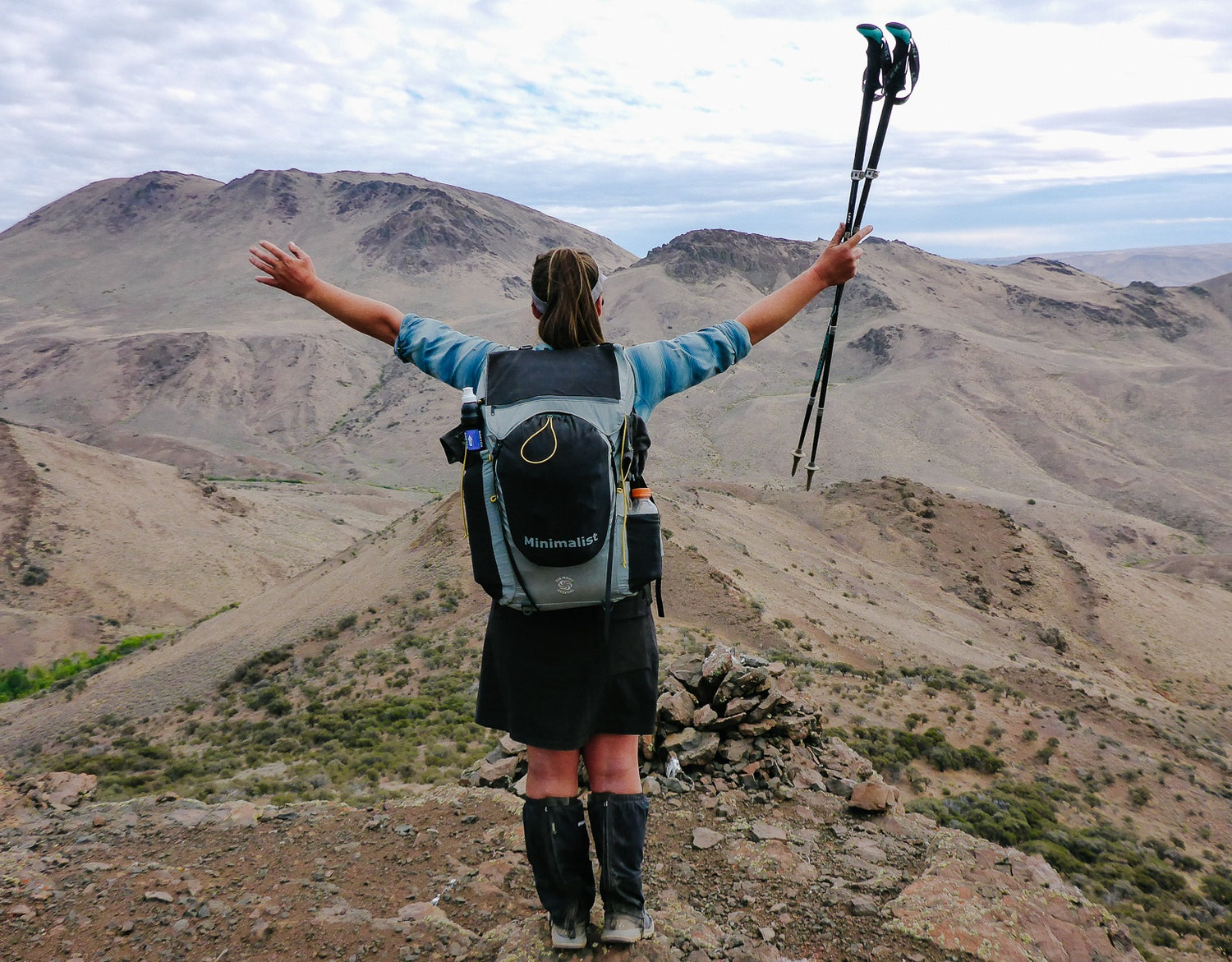

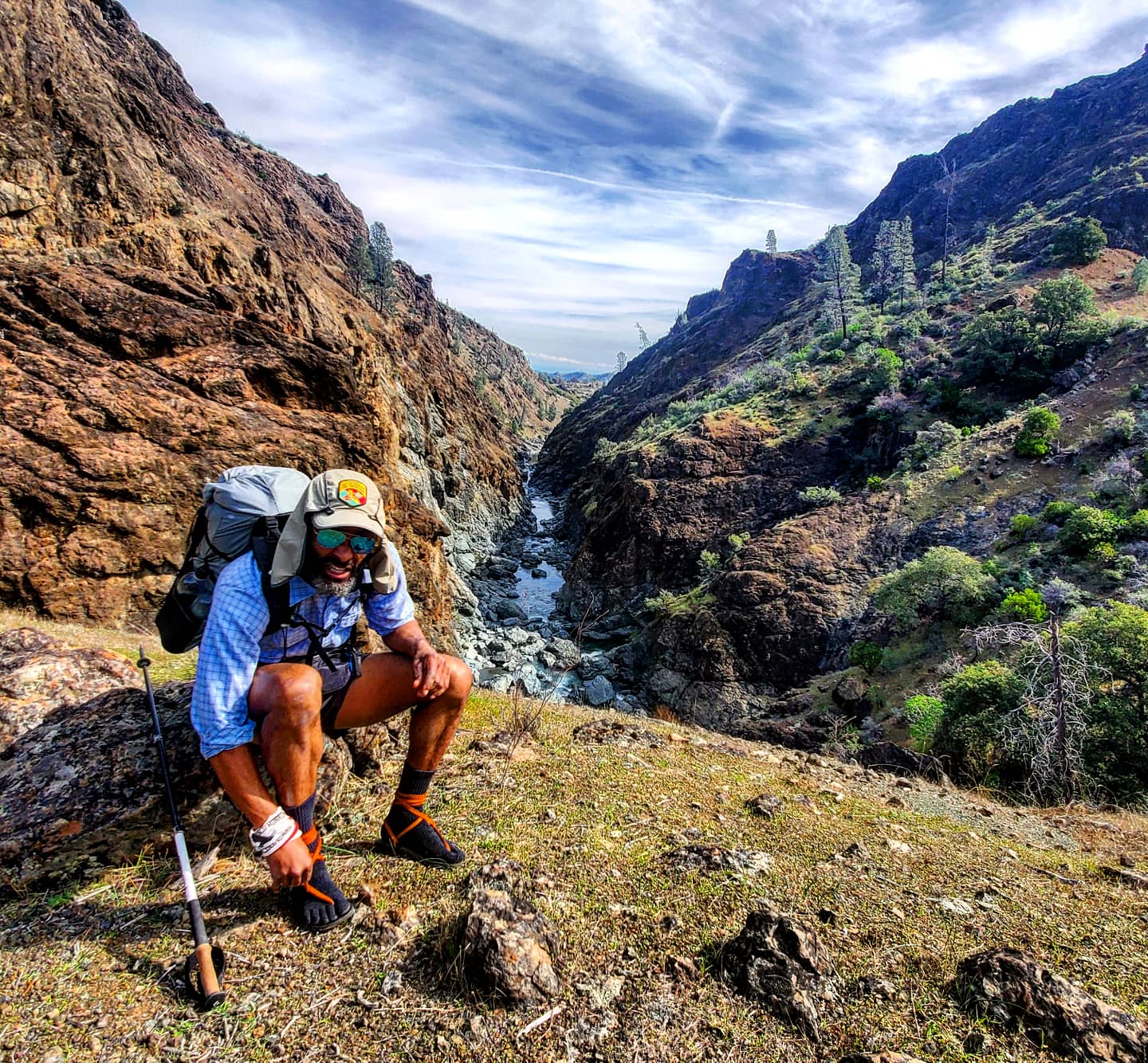
Leave a comment
This site is protected by hCaptcha and the hCaptcha Privacy Policy and Terms of Service apply.